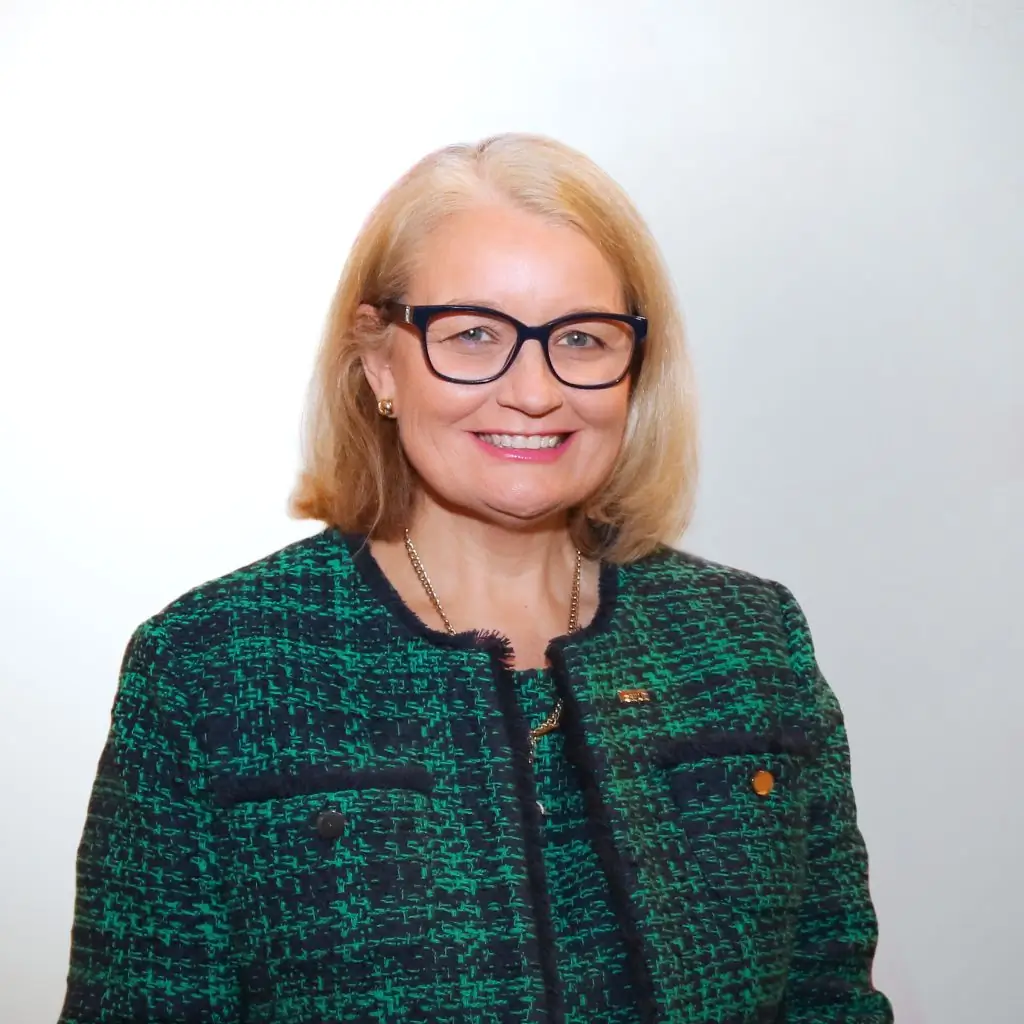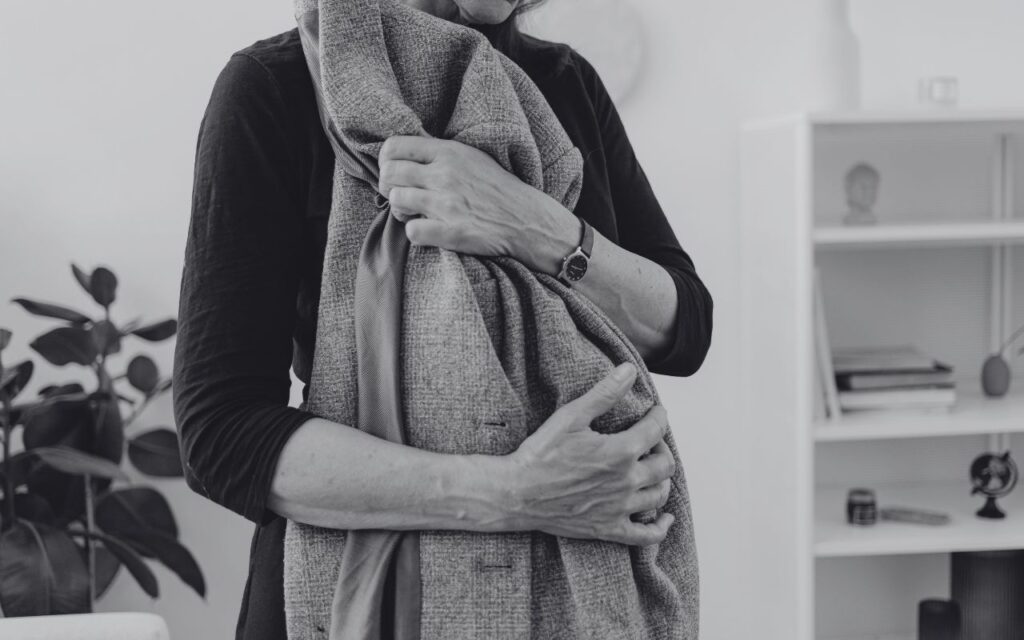
Catherine Clark: We’d love to start by taking a step back because you were born and raised in Northern Ireland. You were educated there. And it was, I guess, at that time, a fateful decision that had you move abroad for work as a young professional. What led to that decision as a young woman that made you want to take that risk?
Mairead Lavery: I was born just as what is known as ‘the troubles’ started in Northern Ireland in 1968. So that’s really the environment that I grew up in, just dealing with the day-to-day challenges of being in a conflict situation. That really shaped my early life, my early career. I was the first in my family to go to university. I then trained as a chartered accountant and I just knew that I wanted to try different things, and I was very interested in the international space.
When I had the chance to go work for Bombardier, having been at a consulting firm before that, Ernst and Young, this was a chance to work with a broader perspective and work very differently. So that’s really what attracted me to get onto the international stage, that there had to be something different than this very inward-looking conflict and what is, in fact, a very small region of the world.
I joined Bombardier and I had the chance after 15 months to come to their head office in Montreal and do a two-year assignment. And honestly, when I got to Montreal, I loved the culture, I loved the environment I was working in, and I just had so many opportunities. The sense of being in a large company and the ability to do many different things really was what I was looking for. It was satisfying my curiosity because I wasn’t always doing the same thing. And that’s what really made me stay in Canada, just the opportunities and what it represented to me, and a very different lifestyle, and a very different set of values in the people that I was interacting with.
Jennifer Stewart: There’s a bit of a double standard in the Canadian business landscape where men are praised for their experience, and women are sometimes discriminated against as they progress in their career. Can you talk to us about why you feel it’s so important to be open about your age?
Mairead Lavery: I think there can be discrimination. One of my values that I hold quite strongly is transparency, and I can’t expect to see that or experience that if I don’t do it myself. So, that’s who I am. I’m quite open, quite transparent, and things around age are actually only usually upsetting to me when I’m talking to our new employees and I realize what a big difference there is between the age of our new employees and the age of myself. I think it’s really important that I use my platform to be the change that I want to see in the world. And if I see discrimination, if I can be a role model in doing things a little bit differently to prevent that, or to show people that it’s okay, then it is okay. And for me talking about my age is to help situate people as well as to what generation do I come from, what beliefs might I have, what values might I have, and that’s really helpful as you then start to engage in a conversation because you’re actually just building understanding of the other person.
One of my values that I hold quite strongly is transparency, and I can’t expect to see that or experience that if I don’t do it myself.
Mairead Lavery
Catherine Clark: How did you get to a stage where you understood the kind of leader you wanted to be, the kind of professional you wanted to be?
Mairead Lavery: I think there’s many different angles to that. The first one, I think, is actually seeing and experiencing leaders where you understand that you are willing to give more for that leader than perhaps even they’re asking for. You have role models, you have mentors, you have coaches throughout your career. I think leadership becomes this quilt, let’s say, of different experiences, of different learnings that you’ve had, and you start to stitch together those that resonate with you, and what do I want to be remembered for?
I made lots of mistakes. One of the toughest things for me was a piece of feedback I got, let’s say early 2000. I was leading a small team, and very typically we had an engagement survey, and my results came back and they were really bad. I remember exactly the number: out of 100, it was 53. And I was like, what’s going on? The team is delivering everything that they need to deliver. And quite honestly, I was pushing my team too hard. I wasn’t taking into account them as people. And I was just driving them the way that perhaps I would drive myself and that was a hugely humbling learning experience.
Another piece of feedback, when I was on the executive team of Bombardier, was when I went into my annual performance review with the president. And he says, “Well, how do you think you did this year?” and I listed all the achievements that I’d made. And he said, “Did you think about you as a role model? You have forgotten that you’re a role model, and that as a leader, everything you do matters. How you say things matters, what you think about matters, how you present yourself, how you engage with employees, how you show up at meetings, the notes that you send, when you send them,” and he just in that moment, with this piece of feedback, gave me this huge understanding that it isn’t about me and am I a good leader. It’s actually looking at the others and how I interact with them and what they think about me.
So those two pieces of feedback were hugely important to me, and add that then to the examples I had in my life as to who I wanted to be, to emulate — those are probably the things that were the most impactful in deciding who I wanted to be as a leader.
Catherine Clark: How do you take care of yourself?
Mairead Lavery: I haven’t been really good at that. Over my career, I haven’t put myself first. The pandemic actually has been really good for me and that’s a really unusual thing to say. But I’ve spent my career traveling the world. I’ve always been involved on an international platform. I have a hugely extensive international network. And that has meant that I’ve been used to living between a couple of different places, I am used to traveling, I’m always off, I’m always not there for the family party, or not there for my friends’ celebrations. And the pandemic has forced me to be in one location for two years. And quite honestly, it’s been a gift to me for my personal health. I was pathetic at the start. All I was doing was eating my way through all the challenges. In 2021 I said something has to be different. I really focused on me: I tried to eat better, I insisted on daily exercise. I go for an hour walk every day and I physically feel better. Mentally, I’m actually taking a break because I’m out walking. It’s wonderful.
I realized I can’t keep doing what I do unless I look after myself. I’ve always been really good at segregating work and my home life. And that changed in the pandemic, because all of a sudden work was right here in the house with me. And it was just too easy to keep going to the desk and doing work versus actually switching off. So now I’m equally very focused, the weekends are pretty sacrosanct to me. And I find that I’m much more prepared to work a few longer hours during the week, as long as I can actually disconnect at the weekend. I think I have started to put myself as a priority. And I keep telling all of our team they need to do the same thing. I haven’t been a good role model in this one.
Catherine Clark: As you contemplate the next decade and a half, what kind of impact do you want to have?
Mairead Lavery: I’m really clear about what success looks like for me and I link that to my values. I’m really clear about leaving a legacy, and it is about improving Canadian trade. Because if we improve exports and improve Canadian trade, we will improve the lives of all Canadians, whether that’s connection through supply chains, an increase in jobs, or just the increase in opportunity for Canada. I’ve set the team a pretty tough objective to get there over 10 years. But that’s the impact I want to have. I want Canada to regain its standing in the OECD as a key trading community in the world.







